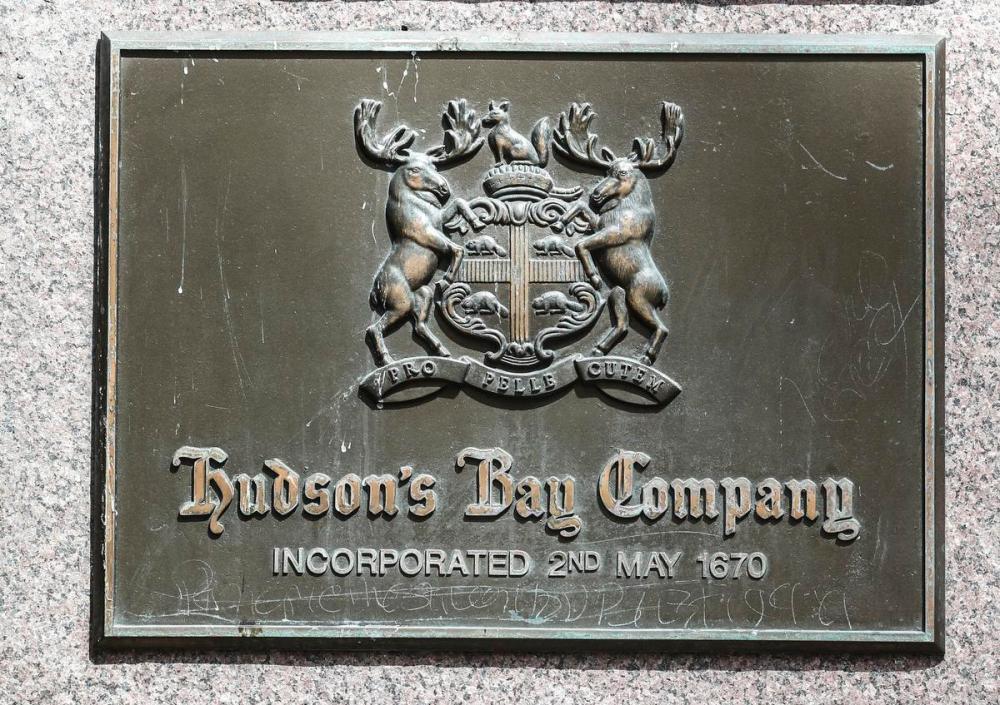Hudson’s Bay store at Bloor-Yonge to close May 31
Advertisement
Read this article for free:
or
Already have an account? Log in here »
To continue reading, please subscribe:
Monthly Digital Subscription
$0 for the first 4 weeks*
- Enjoy unlimited reading on winnipegfreepress.com
- Read the E-Edition, our digital replica newspaper
- Access News Break, our award-winning app
- Play interactive puzzles
*No charge for 4 weeks then price increases to the regular rate of $19.00 plus GST every four weeks. Offer available to new and qualified returning subscribers only. Cancel any time.
Monthly Digital Subscription
$4.75/week*
- Enjoy unlimited reading on winnipegfreepress.com
- Read the E-Edition, our digital replica newspaper
- Access News Break, our award-winning app
- Play interactive puzzles
*Billed as $19 plus GST every four weeks. Cancel any time.
To continue reading, please subscribe:
Add Free Press access to your Brandon Sun subscription for only an additional
$1 for the first 4 weeks*
*Your next subscription payment will increase by $1.00 and you will be charged $16.99 plus GST for four weeks. After four weeks, your payment will increase to $23.99 plus GST every four weeks.
Read unlimited articles for free today:
or
Already have an account? Log in here »
Hey there, time traveller!
This article was published 24/02/2022 (1389 days ago), so information in it may no longer be current.
An iconic location of Canadian retail giant Hudson’s Bay is closing in a matter of months, the latest closure by the embattled department store during the pandemic.
The Bloor and Yonge location of Hudson’s Bay is closing at the end of May, said Hudson’s Bay Company spokesperson Tiffany Bourre.
The 44 Bloor St. East department store was the retailer’s flagship location between 1974 and 1991. That title now resides with a nearby location on Queen Street, just 2.5 kilometres from the soon-to-be shuttered store.

In an emailed statement, Bourre said the company decided to close the store due to its proximity to the Queen Street location, in an effort to optimize its real estate portfolio.
“We are committed to treating every associate with respect and fairness through this process. All eligible associates will receive appropriate employment separation packages and transfer opportunities will be explored where feasible,” said Bourre.
Retail analyst and author Bruce Winder said the move isn’t surprising given the store’s proximity to the Queen Street location and the declining department store sector.
“It just shows you how the Bay is shrinking,” said Winder, adding he expects more closures from the retailer, which he applauds as a business decision that could bring the company into the future.
The department store segment itself has been shrinking, he said, and customers seeking out an in-person department store experience are more likely to go to a higher-end or trendier store like Nordstrom or Holt Renfrew.
The centuries-old company had its share of difficulties during the pandemic, as retailers dealt with lockdowns and restrictions and the accelerated shift to e-commerce. Downtown locations in major urban centres were particularly hard-hit, the company previously told the Star — likely in part due to the exodus of workers from downtown office districts.
In November 2020, the retailer was ordered by a Quebec judge to pay three of its landlords millions in unpaid rent, and in 2021, an Ontario judge issued a similar order. The retailer was faced with eviction notices at multiple locations.
Two of the company’s older stores, in Edmonton and Winnipeg, were also set to close, though the company attributed this to “shifting consumer behaviour,” not the pandemic.
The retailer was struggling before COVID-19, industry experts have told the Star, with the department-store sector in general declining and a lack of investment in its online infrastructure.
During the pandemic, the company sought to revamp its offerings, announcing a third-party online marketplace in late 2020, relaunching its loyalty program in the summer of 2020, and getting into the resale market.
The company also launched “showroom” pilot projects at multiple stores to explore different uses for the in-person shopping experience.
Mid-2020, the company split its retail branch in two, between its website “The Bay” and its brick-and-mortar locations, called “Hudson’s Bay.” Analysts like Winder questioned the decision.
Hudson’s Bay Company was falling behind in the e-commerce world before the pandemic, said Winder, which was only accelerated by the pandemic. It will take time, investment and bold moves for the retailer to find its next iteration, he said — for example, he said the addition of Forever 21 into its offerings is a step in the right direction.
He thinks there is still a market for the Hudson’s Bay Company, but it looks a lot smaller and a lot more online, perhaps with one big store in each major city.
“I think that they’ve still got a long way to go.”
Rosa Saba is a Toronto-based business reporter for the Star. Follow her on Twitter: @rosajsaba


